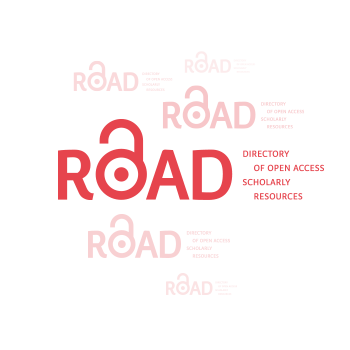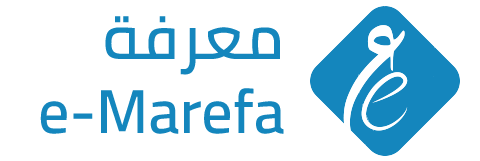دور التكنولوجيا الرقمية في تطوير القيادة المدرسية- دراسة ميدانية في مدارس محافظة القدس
DOI:
https://doi.org/10.59994/pau.2025.2.133الكلمات المفتاحية:
التكنولوجيا الرقمية، القيادة المدرسية، التخطيط الإداري، التوجيه الإداري، التواصل الرقميالملخص
تهدف هذه الدراسة إلى تحليل دور التكنولوجيا الرقمية في تطوير القيادة المدرسية، من خلال دراسة ميدانية أُجريت في مدارس محافظة القدس. تركّزت الدراسة على ثلاثة محاور رئيسة: التخطيط الإداري، التوجيه الإداري، التواصل الرقمي، وهدفت إلى قياس مدى توظيف هذه التقنيات في تعزيز الأداء الإداري للمديرين. اعتمدت الباحثة المنهج الوصفي التحليلي، وطُبّقت أداة استبانة مكونة من (30) فقرة على عينة شملت (128) مديرًا ومديرة. أظهرت النتائج أن درجة توظيف التكنولوجيا الرقمية في القيادة المدرسية كانت مرتفعة في جميع المجالات، بمتوسط حسابي كلي بلغ (3.92). جاء مجال التخطيط الإداري في الصدارة بمتوسط (3.94)، وأبرزت النتائج استخدام أدوات الذكاء الاصطناعي في تحليل البيانات ووضع الخطط المستقبلية. أما مجال التوجيه الإداري، فقد بلغ متوسطه (3.83)، مع الاعتماد على تطبيقات رقمية لتقييم الأداء وتقديم التغذية الراجعة. كما كشفت النتائج عن ارتفاع واضح في توظيف قنوات التواصل الرقمي بمتوسط حسابي (3.99)، ما يعكس وعيًا إداريًا بأهمية التكامل التكنولوجي في تحسين بيئة العمل المدرسية. وأظهرت النتائج فروقًا ذات دلالة إحصائية في تصورات المديرين تُعزى لمتغيري الجنس وسنوات الخبرة، لصالح الإناث ومن لديهم خبرة (16 سنة فأكثر)، في حين لم تسجل فروق وفق المؤهل العلمي. وانتهت الدراسة إلى عدد من التوصيات أبرزها: تعزيز التكامل الرقمي في القيادة المدرسية، تطوير برامج تدريب مهني مستمر للقادة والمعلمين، تفعيل المشاركة المجتمعية عبر منصات رقمية، ومواكبة المستجدات في الذكاء الاصطناعي، مع مراعاة الفروق الفردية في برامج التمكين الرقمي لضمان قيادة تربوية فعالة، وتمثل الدراسة إضافة نوعية من خلال تركيزها على بيئة القدس التعليمية، وربطها بين أبعاد القيادة المدرسية والتكنولوجيا الرقمية في ضوء أطر نظرية حديثة، مما يُسهم في سد فجوة بحثية معاصرة.
التنزيلات
المراجع
المراجع العربية:
الشهراني، سها. (2023). استخدام قادة المدارس الثانوية بمدينة أبها الحضارية التقنيات الحديثة في تطوير العمليَّات الإدارية. مجلة التربية-كلية التربية بالقاهرة، 42(198)، 487-529.
العدوان، تغريد. (2023). تطوير المهارات القيادية لمديري المدارس الحكومية في ضوء مهارات التحوّل الرقمي (دراسة ميدانية بمديرية تربية لواء الجامعة). المجلة العلمية لكلية التربية- جامعة أسيوط، 39(1)، 206-228.
المراجع العربية بنظام الرومنة:
Alshhrany, Sha. (2023). astkhdam qadh almdars althanwyh bmdynh abha alhdaryh altqnyat alhdythh fy ttwyr al'emlyَat aledaryh. mjlh altrbyh-klyh altrbyh balqahrh, 42(198), 487-529.
Al'edwan, Tghryd. (2023). ttwyr almharat alqyadyh lmdyry almdars alhkwmyh fy dw' mharat althwl alrqmy (drash mydanyh bmdyryh trbyh lwa' aljam'eh). almjlh al'elmyh lklyh altrbyh- jam'eh asywt, 39(1), 206-228.
المراجع الأجنبية:
Agustina, R., Kamdi, W., Hadi, S., et al. (2020). Influence of the Principal’s Digital Leadership on the Reflective Practices of Vocational Teachers Mediated by Trust, Self Efficacy, and Work Engagement. International Journal of Learning, Teaching and Educational Research, 19(11), 24–40.
AITSL. (November 2023). Evaluating the evidence for educational technology: Part 1 – the technologies. Australian Institute for Teaching and School Leadership, Retrieved from www.aitsl.edu.au/
AlAjmi, M. K. (2022). The impact of digital leadership on teachers’ technology integration during the COVID-19 pandemic in Kuwait. International Journal of Educational Research, 112, 10-19.
Antonopoulou, H., Halkiopoulos, C., Barlou, O., et al. (2020). Leadership Types and Digital Leadership in Higher Education: Behavioural Data Analysis from University of Patras in Greece. International Journal of Learning, Teaching and Educational Research, 19(4), 110–129.
Antonopoulou, H., Halkiopoulos, C., Barlou, O., et al. (2021). Associations between Traditional and Digital Leadership in Academic Environment: During the COVID-19 Pandemic. Emerging Science Journal, 5(4), 405–428.
Asante, K., & Novak, P. (2023). When the push and pull factors in digital educational resources backfire: the role of digital leader in digital educational resources usage. Education and Information Technologies, 29(6), 6553–6578.
Asif, M., Yang, L., & Hashim, M. (2024). The Role of Digital Transformation, Corporate Culture, and Leadership in Enhancing Corporate Sustainable Performance in the Manufacturing Sector of China. Sustainability, 16(7), 2651.
Bass, B. M., & Riggio, R. E. (2006). Transformational leadership (2nd ed.). Mahwah, NJ: Lawrence Erlbaum Associates.
Bass, B. M., & Riggio, R. E. (2006). Transformational leadership (2nd ed.). Mahwah, NJ: Lawrence Erlbaum Associates.
Cifuentes, L., Maxwell, G., & Bulu, S. (2023). Technology Integration through Professional Learning Communities. Journal of Educational Computing Research, 44(1), 59-82.
Dexter, S. (2011). The impact of technology integration on educational leadership practices and school improvement efforts. Journal of Research on Technology in Education, 43(3), 255–284.Ellis, M. L., Lu, Y. H., & Fine-Cole, B. (2021). Digital learning for North Carolina educational leaders. TechTrends, 65(5), 696-712.
Ghamrawi, N., & M. Tamim, R. (2023). A typology for digital leadership in higher education: the case of a large-scale mobile technology initiative (using tablets). Education and Information Technologies, 28(6), 7089–7110. https://doi.org/10.1007/s10639-022-11483-w
Heifetz, R. A., Grashow, A., & Linsky, M. (2009). The practice of adaptive leadership: Tools and tactics for changing your organization and the world. Boston, MA: Harvard Business Press.
Heifetz, R. A., Grashow, A., & Linsky, M. (2009). The practice of adaptive leadership: Tools and tactics for changing your organization and the world. Boston, MA: Harvard Business Press.
https://doi.org/10.1111/bjet.12846
https://www.sciencedirect.com/science/article/pii/S2666784325000622
Jassim, S. (2024). Educational innovation and leadership: Shaping the future of learning. Academy of Educational Leadership Journal, 28(2), 1-3
Karakose, T., & Tülübaş, T. (2024). School Leadership and Management in the Age of Artificial Intelligence (AI). Educational Process: International Journal, 13(1), 7-14.
Karakose, T., Demirkol, M., Yirci, R. (2023). A Conversation with ChatGPT about Digital Leadership and Technology Integration: Comparative Analysis Based on Human–AI Collaboration. Administrative Sciences, 13(7), 157.
Karakose, T., Yirci, R., & Papadakis, S. (2022). Exploring the interrelationship between digital leadership roles and school administrators in the age of artificial intelligence. Sustainability, 14(4), 2164. https://doi.org/10.3390/su14042164
Mandinach, E. B., & Gummer, E. S. (2016). What does it mean for teachers to be data literate: Laying out the skills, knowledge, and dispositions. Teaching and Teacher Education, 60, 366–376.
Mandinach, E. B., & Gummer, E. S. (2016). What does it mean for teachers to be data literate: Laying out the skills, knowledge, and dispositions. Teaching and Teacher Education, 60, 366–376. https://doi.org/10.1016/j.tate.2016.07.011
Msila, V. (2022). Higher Education Leadership in a Time of Digital Technologies: A South African Case Study. International Journal of Information and Education Technology, 12(10), 1110–1117.
Peng, Y., Alias, B. S., Mansor, A. N., & Ismail, M. J. (2024). Charting the evolving landscape of digital leadership in education: A systematic literature review. Journal of Infrastructure, Policy and Development, 8(8), 5925.
Tsai, Y. S., Poquet, O., Gašević, D., Dawson, S., & Pardo, A. (2019). Complexity leadership in learning analytics: Drivers, challenges and opportunities. British Journal of Educational Technology, 50(6), 2839–2854.
Vroom, V. H., & Jago, A. G. (2007). The role of the situation in leadership. American psychologist, 62(1), 17-24.
Vroom, V. H., & Jago, A. G. (2007). The role of the situation in leadership. American Psychologist, 62(1), 17–24. https://doi.org/10.1037/0003-066X.62.1.17
Zhang, Y., Dewitt, D., & Cheah, K. S. L. (2025). Virtual Reality for Sustainable and Responsible Pedagogy in Art and Design Education: A Systematic Review of Motivation and Digital Leadership. Cleaner and Responsible Consumption, 9, 100137.
التنزيلات
منشور
كيفية الاقتباس
إصدار
القسم
الرخصة
الحقوق الفكرية (c) 2025 مجلة جامعة فلسطين الأهلية للبحوث والدراسات

هذا العمل مرخص بموجب Creative Commons Attribution 4.0 International License.
مجلة جامعة فلسطين الاهلية للبحوث والدراسات تعتمد رخصة نَسب المُصنَّف 4.0 دولي (CC BY 4.0)











